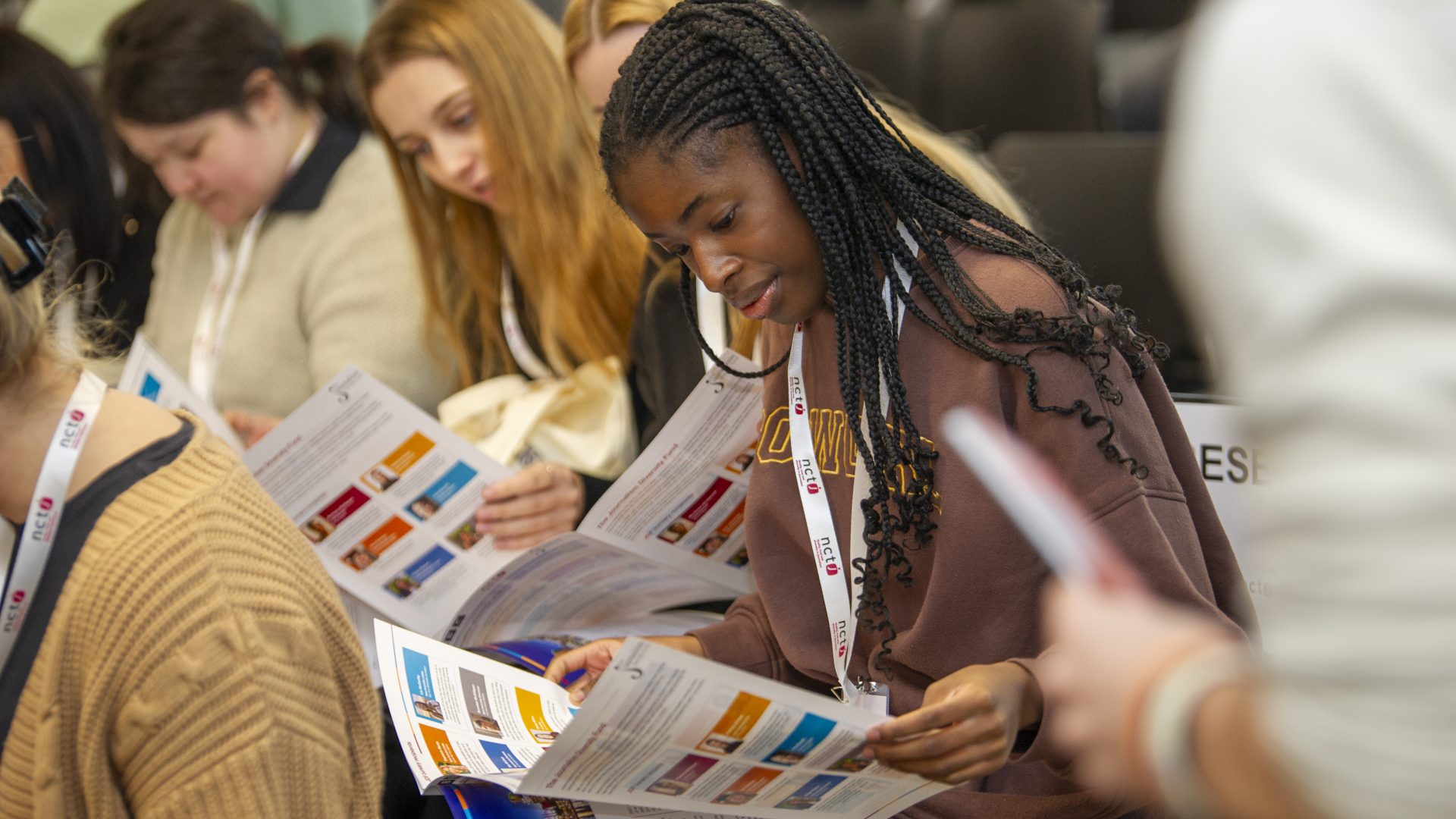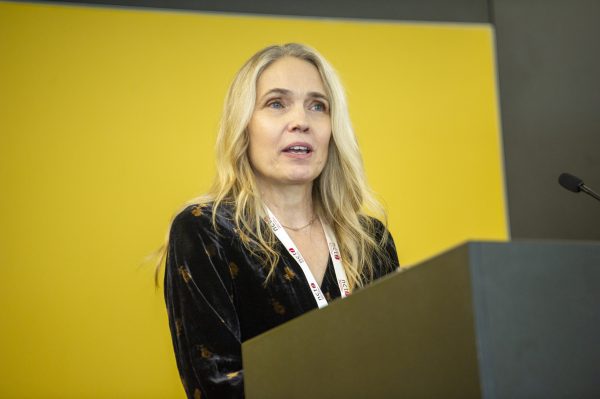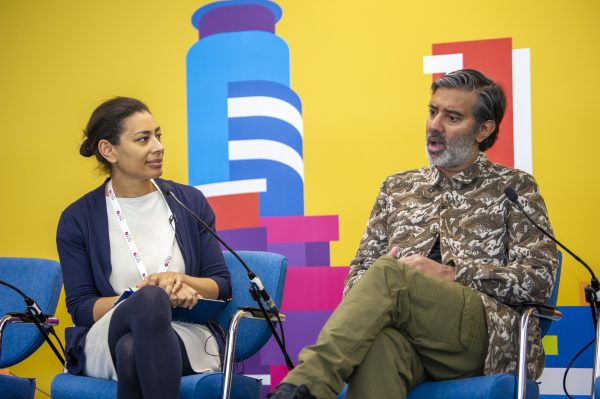
NCTJ holds Equality, Diversity and Inclusion Conference 2023 at BBC in Salford
The NCTJ brought journalists, students, trainers and media organisations' representatives from around the country together to discuss equality, diversity and inclusion in the industry today (November 29).
The NCTJ brought journalists, students, trainers and representatives from media organisations around the country together to discuss equality, diversity and inclusion in the industry today (November 29).
Delegates came to MediaCityUK in Salford to attend the NCTJ’s annual Equality, Diversity and Inclusion Conference, hosted in partnership with the BBC.
The conference celebrates recipients of the NCTJ’s Journalism Diversity Fund (JDF) – which supports people from diverse backgrounds who need help funding their NCTJ journalism training – and considers key questions about how the news media sector can continue to improve its approach to diversity and inclusion.
Opening the event, NCTJ chief executive Joanne Forbes said: “We are looking to understand the barriers people face and what we can do to make a difference.

NCTJ chief executive Joanne Forbes. Credit: Vincent Cole
“There is so much work to be done.”
This was followed by a panel on the benefits of building a neuro-inclusive workforce, chaired by Frances Yeoman, head of journalism at Liverpool John Moores University.
She was joined by Edward Hardy, reporter at Motorsport Network and JDF recipient; Jessie Hewitson, money and business editor at The i; and Michael Pearson, social media lead at the BBC.
Edward, who has autism, said: “In terms of what employers can do [to build a neuro-inclusive workplace], treat me just like anyone else, expect the same things from me.
“But also make sure that the neuro-diverse person knows you are there for support if it’s needed.”
Jessie suggested recruitment practices needs to be addressed: “I’m guessing the interview process weeds out I don’t know how many autistic people but it’s going to be a fair old chunk of people who aren’t going to find it easy to show what they’re capable of.”
She suggested sending over interview questions in advance would help neuro-diverse people showcase their potential.
The second session was an interview conducted by Jo Adetunji, editor of The Conversation UK, with radio and TV presenter Nihal Arthanayake.
During the informal chat, the audience learned about Nihal’s life and career.
He said: “I am nuclear curious, so when I am asking questions in an interview, I am trying to get to the heart of who you are.”

Nihal Arthanayake. Credit: Vincent Cole
Nihal wants to spread “empathy, not hate” through his journalism.
He also spoke about micro-aggressions he has experienced through his career and obstacles he had to overcome.
“I am always trying to work out who the bullies in the playground are,” he said. “That’s a survival instinct that carries on to the end.”
He continued: “There’s a clear problem where managers need to employ people who are not like them.”
Then, a panel chaired by Veronica Kan-Dapaah, assistant editor at the Financial Times, discussed how newsrooms can improve inclusivity and diversity of their output.
The panel featured Declan Carey, local democracy reporter for Stockport and Rochdale; Rianna Croxford, investigative reporter at the BBC; and Clare Fordham, senior news editor at the BBC.
Clare said “things are changing”, but addressed the audience: “The problem is not you, it’s us.
“We, editors, are not diverse enough.”
Declan added: “Lots of jobs are focussed on London.
“If you grew up in the North West or outside London, there are fewer opportunities available to you, despite the fact that there is so much awareness now…and it harms output.”
The third panel saw Karyn Fleeting, delivery director at Reach, and Lucas Johnston, head of product at FT Strategies, discuss how AI tools can help newsrooms become more diverse with the chair, Wes Johnson, head of production at PA Media.
Lucas spoke about a new tool his team is developing, which will assess the gender balance in any given article and prompt the journalist to diversify their sources if necessary.
However, Karyn warned there isn’t any tool that will “magically” break down barriers or replace “human connection and putting in the legwork”.
The event also saw the NCTJ give an update about the JDF, which passed 500 bursaries this year. Find out more about that milestone here.
The recipients of this year’s specialist JDF bursaries were presented with their awards. Read their stories here.
Presenting the Thomas Read bursary, Thomas’ brother Jamie said: “It’s so important that we have this diversity and disability [conversation] – or actually, as I think we need to start calling it, different abilities or para-abilities.”
Neil O’Brien, commercial director of NLA Media Access, also presented NCTJ chairman Kim Fletcher with a cheque as lead sponsor of the JDF.
Closing the event, Kim said: “What’s been brilliant about today is that overwhelming sense of what journalism is at its heart.
“I think we’ve seen that from every speaker, but it’s great to hear it again in the discussion about AI, why you still need human beings at the end of all this.
“What we’ve heard nearly all the way through from the very first panel is that sense of mischief, energy and what journalism can be.
“There’s a sense of banging down doors, making demands, trying to bring about change.
“And I think that’s a really important thing to remember.”
To find out more about the JDF, click here.

